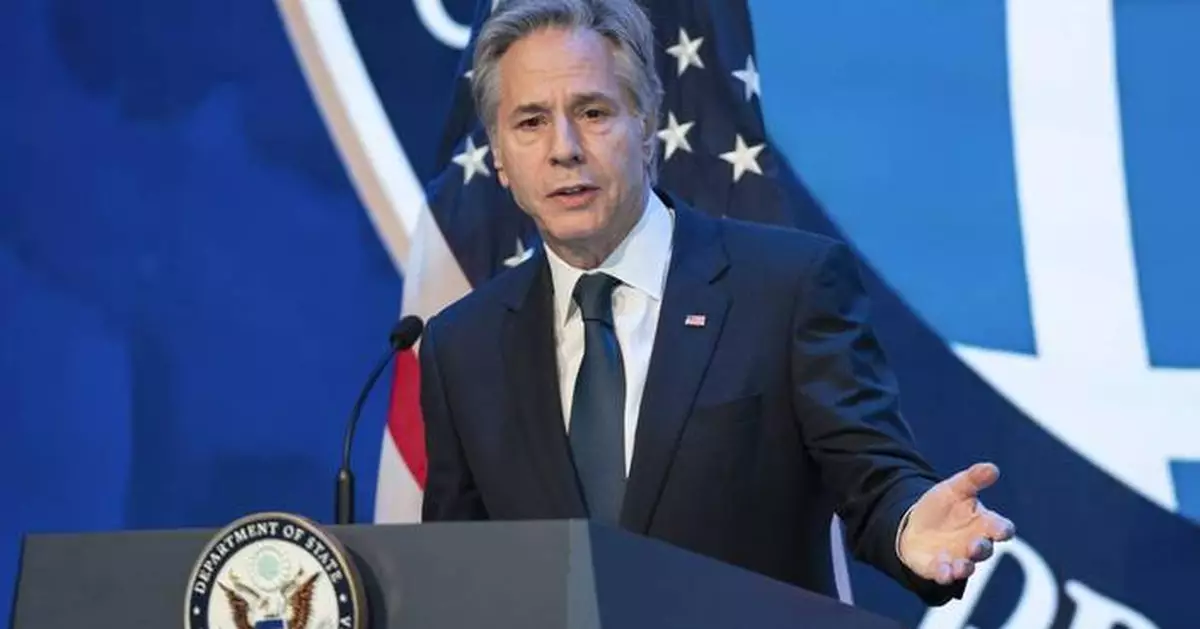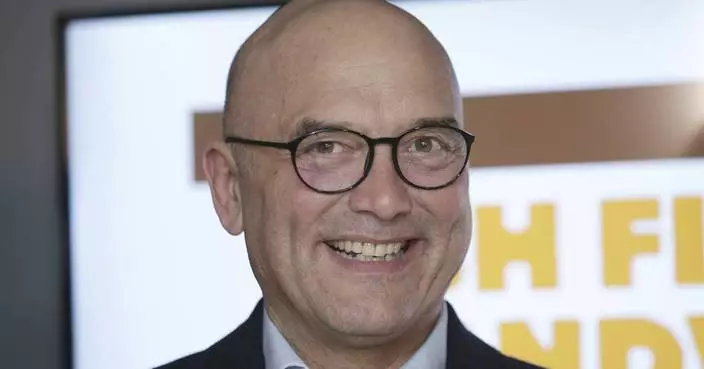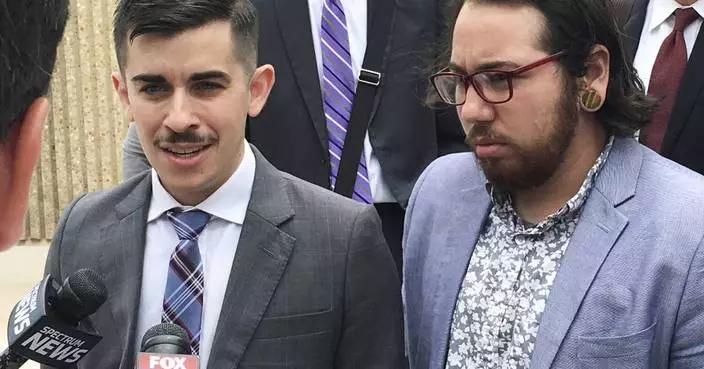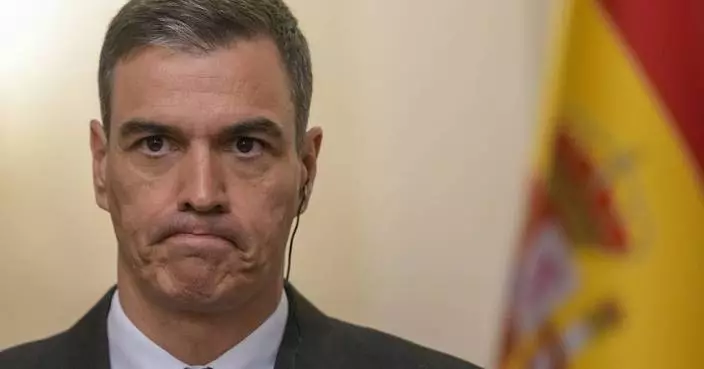WASHINGTON (AP) — Secretary of State Antony Blinken is heading back to Europe on Monday for what will likely be the last high-level NATO meeting before the Biden administration leaves office next month.
Shoring up allied support for Ukraine ahead of President-elect Donald Trump 's return to the White House in January will top the agenda at NATO foreign ministers meetings in Brussels on Tuesday and Wednesday, according to the State Department.
Blinken will “discuss priorities for transatlantic security, including supporting Ukraine’s fight against Russia’s invasion, deepening cooperation with NATO’s southern partners in the Middle East, North Africa, and Sahel regions, and preparing for the upcoming summit at The Hague,” the department said in a statement.
Outgoing President Joe Biden will not be in power when NATO leaders gather for their next summit in June but he has stepped up the delivery of weapons and other materiel to Ukraine over the past several months and has also eased restrictions on how Kyiv can use them.
Biden's goal is to put Ukraine in the best position possible to negotiate a settlement and has come as Moscow has made significant advances in the conflict and North Korean troops have moved to assist Russian forces.
By contrast, Trump has been skeptical of the U.S. assistance and has suggested that his administration will sharply curtail or end it. He has also appointed former Gen. Keith Kellogg to oversee efforts to mediate an end to the war.
From Brussels, Blinken will travel to Malta where he will attend a Thursday meeting of foreign ministers from the Organization for Security and Cooperation in Europe, a group that has been challenged by recent developments in Ukraine, Georgia and elsewhere.
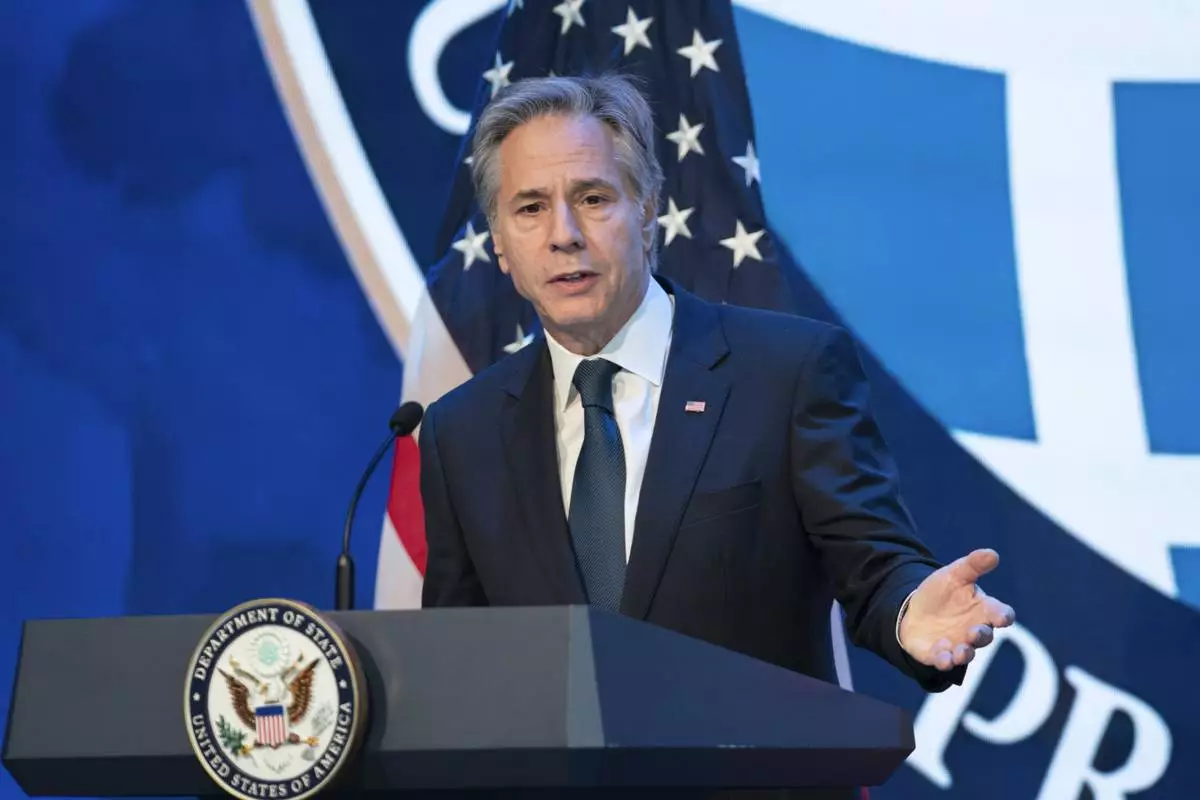
Secretary of State Antony Blinken speaks at the Overseas Security Advisory Council (OSAC) annual briefing at Amazon headquarters in Arlington, Va., Thursday, Nov. 21, 2024. (AP Photo/Jose Luis Magana)
Intel CEO Pat Gelsinger has retired, the struggling chipmaker said Monday in a surprise announcement.
Two company executives, David Zinsner and Michelle Johnston Holthaus, will act as interim co-CEOs while the company searches for a replacement for Gelsinger, who also stepped down from the company's board.
The apparent ousting of Gelsinger, whose career spanned more than 40 years, underscores the turmoil at Intel. The company was once a dominant force in the semiconductor industry but has been eclipsed by rival Nvidia, which has cornered the market for chips that run artificial intelligence systems.
Nvidia's ascendance was cemented earlier this month when it replaced Intel on the Dow Jones Industrial Average.
Gelsinger started at Intel in 1979 at Intel and was its first chief technology officer. He returned to Intel as chief executive in 2021.
Zinsner is executive vice president and chief financial officer at Intel. Holthaus was appointed to the newly created position of CEO of Intel Products, which includes the client computing group, data center and AI group and network and edge group.
Frank Yeary, independent chair of Intel's board, will become interim executive chair.
“Pat spent his formative years at Intel, then returned at a critical time for the company in 2021,” Yeary said in a statement. "As a leader, Pat helped launch and revitalize process manufacturing by investing in state-of-the-art semiconductor manufacturing, while working tirelessly to drive innovation throughout the company.”
Gelsinger's departure comes as Intel’s financial woes have been piling up. The company posted a $16.6 billion loss in the most recent quarter. Gelsinger announced plans in August to slash 15% of its huge workforce — or about 15,000 jobs — as part of cost-cutting efforts to to save $10 billion in 2025.
Unlike some of rivals such as Nvidia, Intel manufactures chips in addition to designing them.
Last week it was revealed that the Biden administration plans on reducing part of Intel’s $8.5 billion in federal funding for computer chip plants around the country, according to three people familiar with the grant who spoke on the condition of anonymity to discuss private conversations.
The reduction is largely a byproduct of the $3 billion that Intel is also receiving to provide computer chips to the military. President Joe Biden announced the agreement to provide Intel with up to $8.5 billion in direct funding and $11 billion in loans in March.
The changes to Intel’s funding are not related to the company’s financial record or milestones, the people familiar with the grant told The Associated Press.
Shares of the Santa Clara, California, company, rose 2.6% in morning trading. Its stock has shed 42% in the past year.
AP Business Writer Kelvin Chan contributed to this report from London.
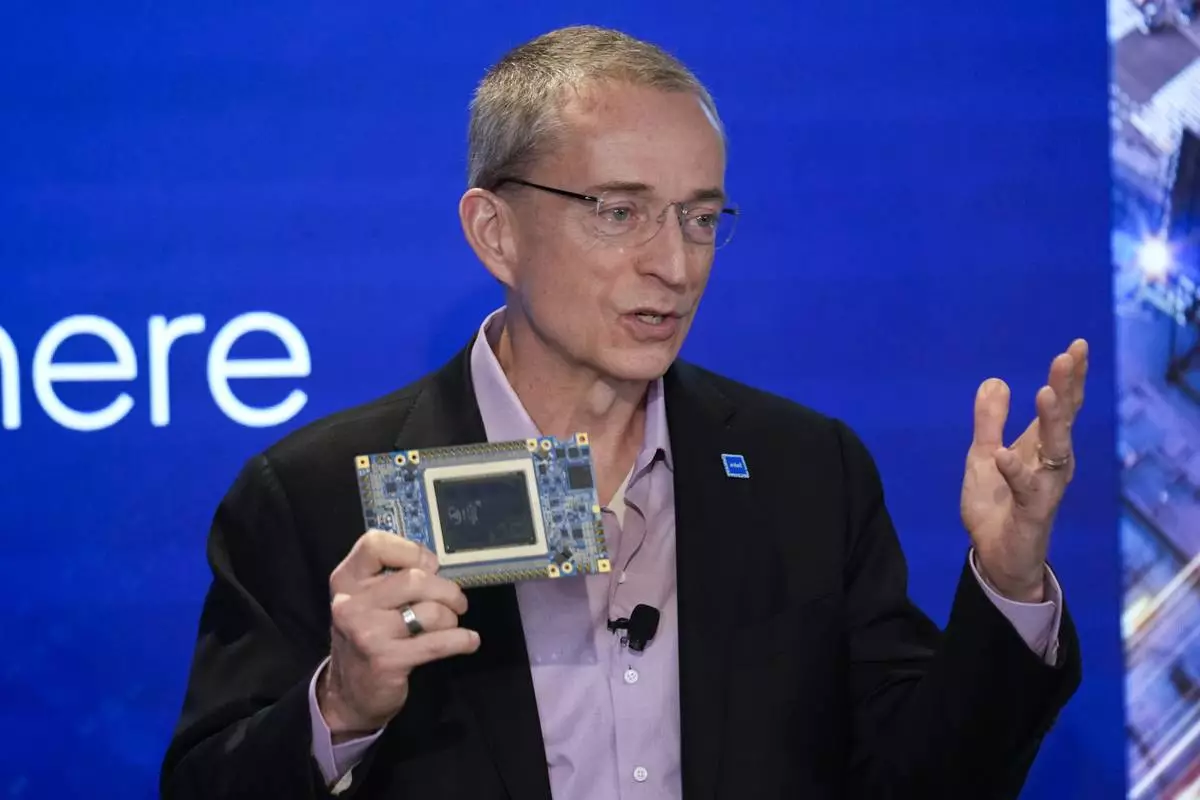
FILE - Intel CEO Pat Gelsinger speaks while holding a new chip, called Gaudi 3, during an event called AI Everywhere in New York, on Dec. 14, 2023. (AP Photo/Seth Wenig, File)



